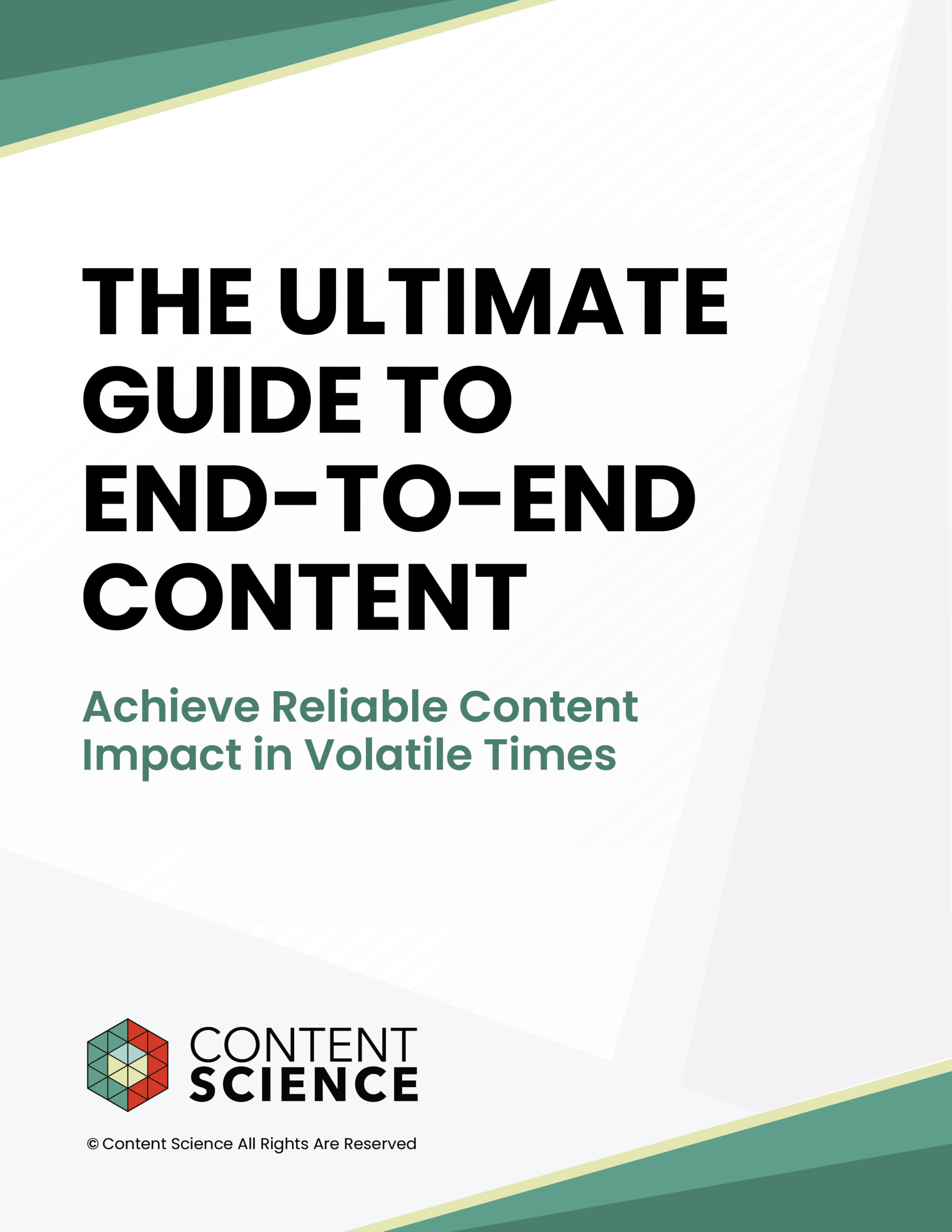
Marketers too often focus on trying to solve the wrong problem, argues CEO and co-founder of content operations software company Kapost, Toby Murdock in “Mastering One Voice.”
Instead of looking outside their organization for new tools and tactics, marketing professionals should turn their attention inward, toward their teams and processes. Building an effective internal content operation isn’t easy, but when done right, it will provide customers with the content consistency they expect. Content Science spoke with Murdock about his new book and how marketing teams can start speaking in one voice.
Your book isn’t a typical business guide. Tell us about what makes it unique.
A: No, it certainly isn’t. Instead of hitting readers over the head with another marketing lecture, we decided to tell the story of content operations as just that—a story. We devoted the entire first half of the book to what I like to call a marketing fable, complete with characters, plot, and plenty of drama.
Doing it this way just made sense from the very beginning of the project. In any big shift like the one marketers are experiencing today, we encounter heroes, nonbelievers, and those who get caught in the cross-fire. We believed it was a story worth telling, and we wanted to do it justice
Why did you decide to take that approach?
A: Content operations is a complicated idea, and it’s not easy to put into practice. Part of why marketers have struggled is that it’s quite difficult to look at ourselves in the mirror and recognize the way we must change internally to build the kind of external experiences customers and prospects now expect from us.
In thinking about this, we realized something important: When you explain a complex concept in technical terms or business-speak, people will nod along all day long. But what do they really take away? Very little. That’s because it’s incredibly difficult to transpose theoretical frameworks onto people’s very real, very messy problems.
But when you tell a story, people quickly start to see themselves and their colleagues in the characters. They think, “I know that person!” or “’I’ve had that conversation!” (And hopefully, when they meet our story’s hero, “I’m going to be that person!”) A novelistic form allows people to take down their walls and get into the details of a complicated subject in an approachable, authentic way.
It’s the same reason humans have been telling parables since the beginning of time: Telling a child they’ll lose credibility if they lie is one thing; telling them the story of the boy who cried wolf is quite another.
Don’t get me wrong: Traditional business books absolutely have a place in the marketing cannon. But they don’t always stick. Before getting into the nitty-gritty, we decided our audience deserved the chance to see our argument in action for themselves.
In your book, you write about why speaking in one voice is the key to marketing-led revenue. Why is speaking in one voice so important?
A: Buyers don’t interact with your company’s distinct departments and teams—they interact with one, singular brand. And they expect a consistent story.
According to Salesforce, three-quarters of consumers say they expect a consistent experience when they engage with a brand. Salesforce also found that 80% of consumers think the experience a company provides is as important as its product.
So when we jerk customers around with inconsistent messaging throughout their buying journey, we’re essentially sabotaging our ability to provide great customer experience, and with that, our ability to win their business.
What is the biggest barrier teams face that keeps them from achieving one voice?
A: Frankly, a lot of people out there are simply trying to solve the wrong problem. And they’re being encouraged to do so by a lot of vendors in our space.
We see it all the time: When people feel their marketing efforts aren’t working the way they expected, they rush off to buy more tools and crank out more content across more channels.
They think they can solve the problem by focusing their energy externally. And don’t get me wrong: Doing that is much sexier than telling your boss and your colleagues that what you really need to do is get your house in order, internally. But it’s what has to be done.
You say that it “isn’t our strategies that are failing. It’s our ability to execute.” Why are marketing teams struggling to execute their content strategies?
A: We have good intentions, but we fail because we haven’t taken a look at our own internal processes. Content operations isn’t about changing what we do publicly as much as it’s about rethinking the way teams work together toward shared goals.
Simply speaking, it doesn’t matter how good your strategy is if you don’t have a solid internal structure designed to make it happen.
What impact do you hope this book has?
A: I hope it gives some marketers out there the kick in the pants they need to go out and bring real, positive change to their organizations. I talk to folks every day who’ve seen the problem but haven’t had the tools to solve it.
I hope this book earns them a promotion—a direct outcome we’ve seen happen for many of our own customers.
What was your process to write this book like?
A: It all started with the vision for the story. I had a plot arc firmly in mind based on all the marketing teams I’ve worked with over the years and wrote the first few chapters of the story. Then my co-author, Zoë Randolph, went to work, expanding it to full-length and supplementing my ideas with interviews with customers as well as our own customer success and professional services teams. We had a lot of fun meetings to talk through all the ways we could make the story feel true-to-life and fun to read.
The non-narrative half of the book was a matter of uniting all of the writing that we’d been doing about content operations for years. We also went about finding the best examples we could to showcase real-life stories of how we’ve seen people manage content operations right.
Finally, we brought in Katie Martell, who has been in the content space for years, to edit the book and help us bring it over the finish line.
Events, Resources, + More
The Ultimate Guide to End-to-End Content
Discover why + how an end-to-end approach is critical in the age of AI with this comprehensive white paper.
The Content Advantage Book
The much-anticipated third edition of the highly rated book by Colleen Jones is available at book retailers worldwide. Learn more!
20 Signs of a Content Problem in a High-Stakes Initiative
Use this white paper to diagnose the problem so you can achieve the right solution faster.
Upskill with Content Science Academy
Training for modern content roles through on-demand certifications + courses or live workshops.







Comments
We invite you to share your perspective in a constructive way. To comment, please sign in or register. Our moderating team will review all comments and may edit them for clarity. Our team also may delete comments that are off-topic or disrespectful. All postings become the property of
Content Science Review.